TORONTO—Canadians headed to the polls on Tuesday and returned a government that looks remarkably like the one they had in early September, before Prime Minister Stephen Harper called a snap election.
Shortly after polls closed, Canada’s two largest television networks—CTV and CBC—had predicted a win for Mr. Harper’s Conservative Party.
The election was the first in a major Western democracy to take place amidst the economic crises that has gripped financial markets over recent weeks, and Canadians opted for Mr. Harper’s pledge to limit spending and make modest cuts to taxes as a means to traverse the global economic slowdown.
Canada is faring better than many other wealthy countries, and international monitors recently declared its banking system is the world’s strongest.
This time, as in the last election in 2006, the Conservatives fell short of the 155 seats required for a majority government in Canada’s 308-member parliament. This means the government will need the support of at least one opposition party in order to enact legislation.
At the time of printing, the Conservatives were leading or elected in 143 districts, called ridings in Canada. Though short of a majority, the number is an increase for Mr. Harper’s party, meaning a stronger mandate for the prime minister.
Mr. Harper called the election on Sept. 7 saying the previous minority parliament was no longer functional. Critics argued that Mr. Harper saw an opportunity to earn a majority government and had called the election in conflict with his own legislation that promised fixed election dates.
Some also said he was seeking another mandate before the effects of a global slowdown had set in, something which ended up taking place during the campaign instead.
The strongest opponent to the Conservatives was the Liberal Party, which ruled Canada for 13 years before Mr. Harper took power in 2006.
The Conservatives were able to make Canadians wary of the Liberals through advertising targeting their leader, Stephane Dion, and his controversial policy to enact a carbon tax. The idea, lauded by environmentalists and some economists, involved applying taxes to pollution and lowering income taxes to match.
Harper’s Conservatives succeeded in painting the plan as too risky a change during economic uncertainty, while also challenging Dion’s claim that it was “revenue neutral” and would not put the country into a deficit.
Mr. Harper’s hopes for a majority may have been most dependent on the vote-rich, primarily French-speaking province of Quebec. His party entered the campaign polling neck-and-neck with the separatist Bloc Quebecois, which only runs candidates in that province.
Mr. Harper had gained favour with Quebecers through a motion he put forward that recognized the Quebecois as a “nation within a united Canada,” and by transferring more federal money to provinces.
However, fortunes turned for Mr. Harper after an announcement that his government was to cut $41 million in arts programs. Though a small sum, and coupled with increases to other programs in arts and culture, the move played poorly in Quebec where many are concerned about preserving and promoting their culture.
Mr. Harper also lost points with a proposal that allowed violent offenders as young as 14 to be sentenced as adults. Many in Quebec favour rehabilitation programs over stiff sentencing.
Mr. Dion’s Liberals were projected to take 76 seats, down from the 103 the Liberals took in the last election. Pundits expect the poor showing may lead to Mr. Dion being replaced as leader.
The Conservatives were not the only party benefiting from the Liberal Party’s decline. The left-wing New Democratic Party was projected to take 37 seats, up from the 29 it earned last election.
The Bloc Quececois were expected to take 50 seats, almost unchanged from the 51 they took in 2006.
Despite taking over 6 per cent of the popular vote, the Green Party was unable to win its first seat in a Canadian federal election.
Shortly after polls closed, Canada’s two largest television networks—CTV and CBC—had predicted a win for Mr. Harper’s Conservative Party.
The election was the first in a major Western democracy to take place amidst the economic crises that has gripped financial markets over recent weeks, and Canadians opted for Mr. Harper’s pledge to limit spending and make modest cuts to taxes as a means to traverse the global economic slowdown.
Canada is faring better than many other wealthy countries, and international monitors recently declared its banking system is the world’s strongest.
This time, as in the last election in 2006, the Conservatives fell short of the 155 seats required for a majority government in Canada’s 308-member parliament. This means the government will need the support of at least one opposition party in order to enact legislation.
At the time of printing, the Conservatives were leading or elected in 143 districts, called ridings in Canada. Though short of a majority, the number is an increase for Mr. Harper’s party, meaning a stronger mandate for the prime minister.
Mr. Harper called the election on Sept. 7 saying the previous minority parliament was no longer functional. Critics argued that Mr. Harper saw an opportunity to earn a majority government and had called the election in conflict with his own legislation that promised fixed election dates.
Some also said he was seeking another mandate before the effects of a global slowdown had set in, something which ended up taking place during the campaign instead.
The strongest opponent to the Conservatives was the Liberal Party, which ruled Canada for 13 years before Mr. Harper took power in 2006.
The Conservatives were able to make Canadians wary of the Liberals through advertising targeting their leader, Stephane Dion, and his controversial policy to enact a carbon tax. The idea, lauded by environmentalists and some economists, involved applying taxes to pollution and lowering income taxes to match.
Harper’s Conservatives succeeded in painting the plan as too risky a change during economic uncertainty, while also challenging Dion’s claim that it was “revenue neutral” and would not put the country into a deficit.
Mr. Harper’s hopes for a majority may have been most dependent on the vote-rich, primarily French-speaking province of Quebec. His party entered the campaign polling neck-and-neck with the separatist Bloc Quebecois, which only runs candidates in that province.
Mr. Harper had gained favour with Quebecers through a motion he put forward that recognized the Quebecois as a “nation within a united Canada,” and by transferring more federal money to provinces.
However, fortunes turned for Mr. Harper after an announcement that his government was to cut $41 million in arts programs. Though a small sum, and coupled with increases to other programs in arts and culture, the move played poorly in Quebec where many are concerned about preserving and promoting their culture.
Mr. Harper also lost points with a proposal that allowed violent offenders as young as 14 to be sentenced as adults. Many in Quebec favour rehabilitation programs over stiff sentencing.
Mr. Dion’s Liberals were projected to take 76 seats, down from the 103 the Liberals took in the last election. Pundits expect the poor showing may lead to Mr. Dion being replaced as leader.
The Conservatives were not the only party benefiting from the Liberal Party’s decline. The left-wing New Democratic Party was projected to take 37 seats, up from the 29 it earned last election.
The Bloc Quececois were expected to take 50 seats, almost unchanged from the 51 they took in 2006.
Despite taking over 6 per cent of the popular vote, the Green Party was unable to win its first seat in a Canadian federal election.
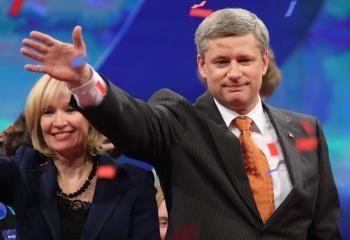
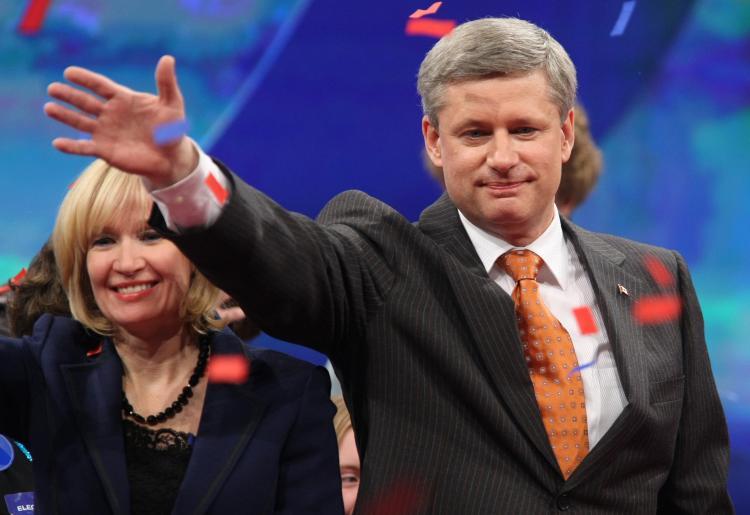
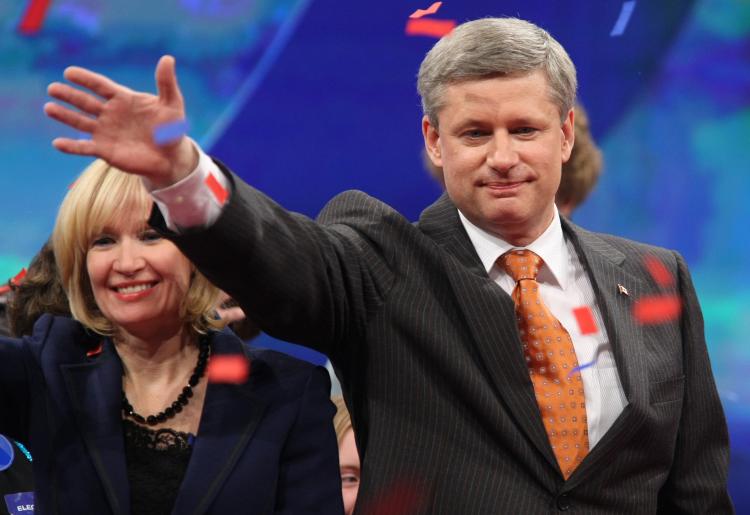
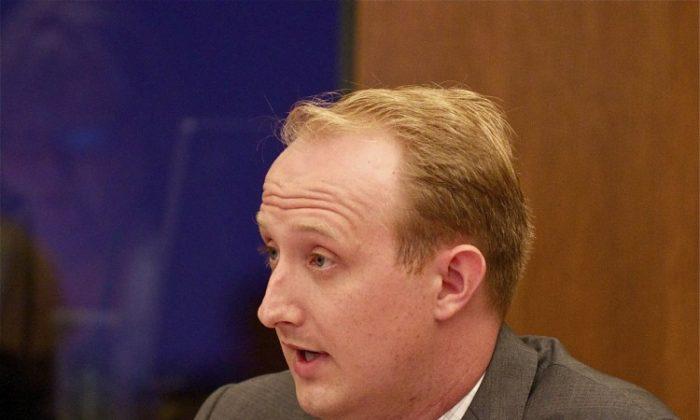

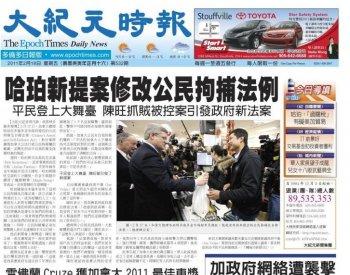
Friends Read Free